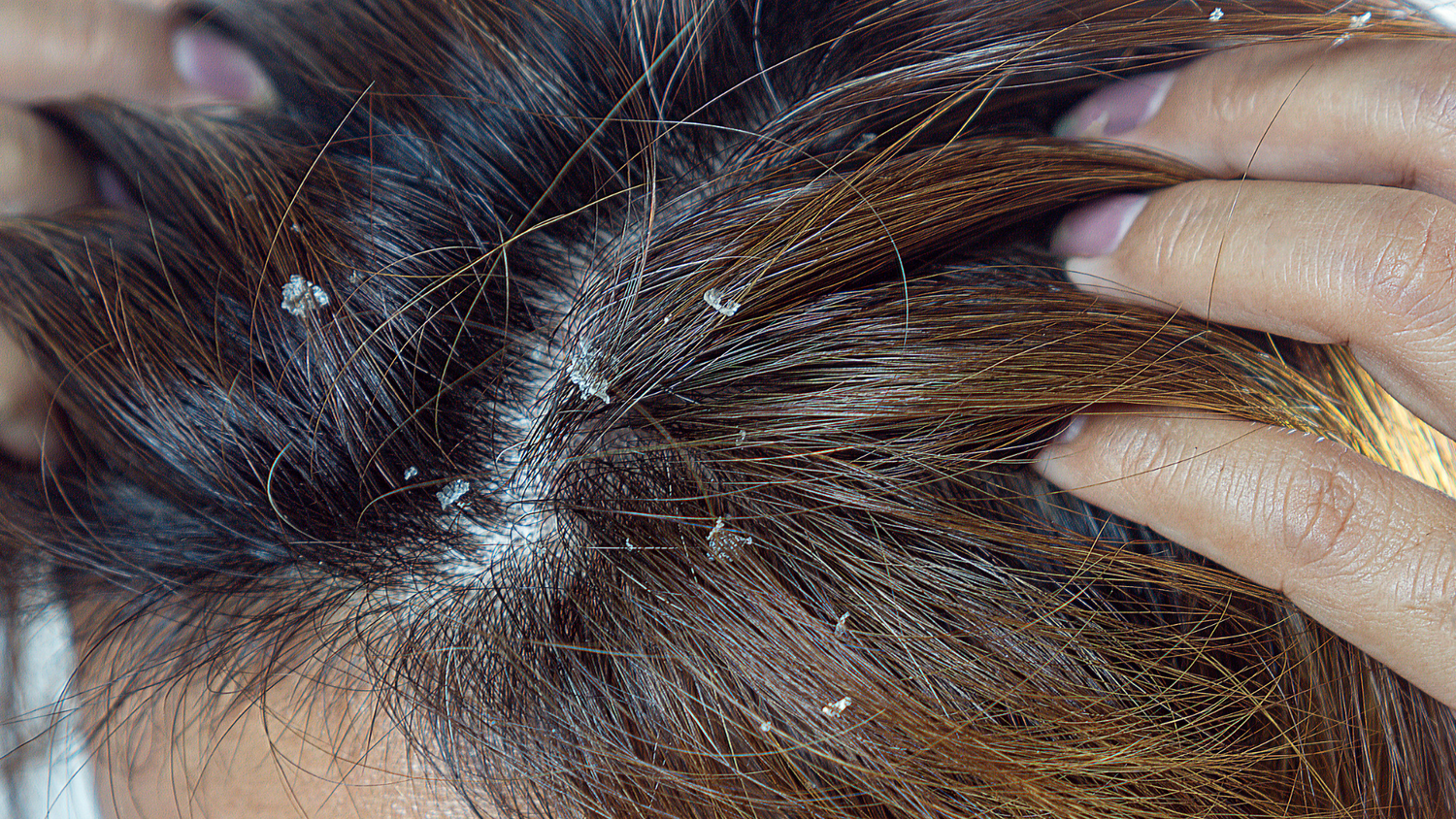Ketoconazole shampoo is a medicated shampoo that is used to treat fungal infections of the scalp, such as dandruff, seborrheic dermatitis, and tinea versicolor. Here's what you need to know about ketoconazole shampoo:
-
How it works: Ketoconazole is an antifungal medication that works by preventing the growth and spread of the fungus that causes scalp infections.
-
How to use it: Wet your hair and scalp thoroughly, apply a small amount of ketoconazole shampoo to your scalp, and massage it in for 1-2 minutes. Rinse thoroughly and repeat the process. Use the shampoo twice a week for up to 4 weeks or as directed by your doctor.
-
Side effects: Ketoconazole shampoo is generally well tolerated, but some people may experience itching, dryness, or irritation of the scalp. Rarely, it can cause an allergic reaction or hair loss.
-
Precautions: Ketoconazole shampoo is for external use only and should not be ingested. Avoid contact with eyes, mouth, and mucous membranes. If contact occurs, rinse thoroughly with water. Consult your doctor before using ketoconazole shampoo if you are pregnant or breastfeeding.
-
Interactions: Ketoconazole can interact with certain medications, including some antibiotics, anticoagulants, and anticonvulsants. Be sure to tell your doctor or pharmacist about all the medications you are taking before using ketoconazole shampoo.
-
Effectiveness: Ketoconazole shampoo has been shown to be effective in treating dandruff, seborrheic dermatitis, and tinea versicolor. However, it may not work for everyone, and some people may need to use other treatments in combination with ketoconazole shampoo.
-
Availability: Ketoconazole shampoo is available over the counter and by prescription. Over-the-counter formulations contain a lower concentration of ketoconazole (1%) than prescription-strength versions (2%). Prescription-strength ketoconazole shampoo may be needed for more severe or persistent scalp infections.
If you have any questions or concerns about ketoconazole shampoo, be sure to talk to your doctor or pharmacist.
What is Ketoconazole Shampoo?
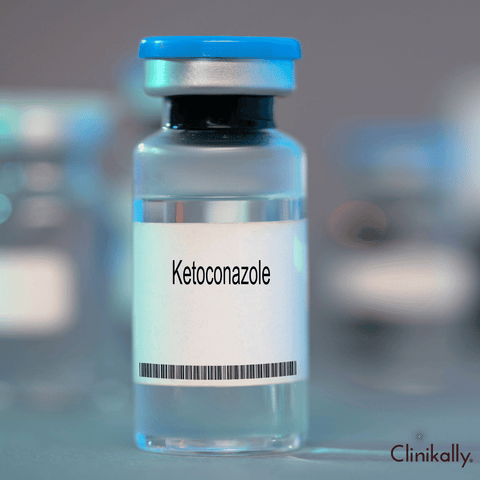
Ketoconazole shampoo is a medicated shampoo that contains the active ingredient ketoconazole, an antifungal medication used to treat fungal infections of the scalp such as dandruff, seborrheic dermatitis, and tinea versicolor. Ketoconazole works by inhibiting the growth of the fungus that causes these conditions.
Ketoconazole shampoo is typically used twice a week for two to four weeks, or as directed by a healthcare professional. It should be applied to wet hair, massaged into the scalp, and left on for several minutes before being rinsed off. It may take several weeks of regular use for the full benefits of the shampoo to be seen.
It is important to note that ketoconazole shampoo is for external use only and should not be ingested. Additionally, if you experience any side effects such as skin irritation or allergic reactions, stop using the shampoo and seek medical advice.
How Does Ketoconazole Shampoo Work?
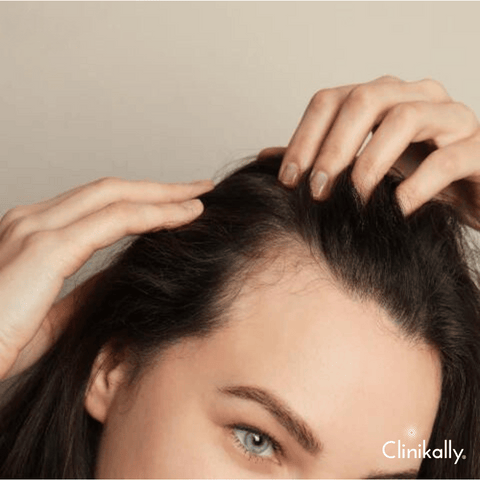
Ketoconazole shampoo is an antifungal medication used to treat fungal infections of the skin, such as dandruff, seborrheic dermatitis, and pityriasis versicolor. It contains the active ingredient ketoconazole, which works by disrupting the cell membranes of the fungal cells, preventing them from producing ergosterol, an essential component of the fungal cell membrane. Without ergosterol, the fungal cell membrane becomes weakened, allowing the contents of the cell to leak out and the cell to eventually die.
Ketoconazole shampoo is applied to the affected areas of the scalp or skin, where it is left for a few minutes before being rinsed off. It is important to follow the instructions on the label carefully and not to use more than prescribed, as this can increase the risk of side effects.
In addition to its antifungal properties, ketoconazole has also been shown to have anti-inflammatory and anti-androgenic effects, which may contribute to its effectiveness in treating certain skin conditions. However, the exact mechanism of these additional effects is not fully understood.
Benefits of Using Ketoconazole Shampoo for Hair and Scalp Health

Ketoconazole shampoo is a medicated shampoo that contains the antifungal agent ketoconazole. Here are some of the benefits of using ketoconazole shampoo for hair and scalp health:
-
Treats dandruff: Dandruff is a common scalp condition that causes itching and flaking. Ketoconazole shampoo is effective in treating dandruff because it targets the fungi that cause it.
-
Controls seborrheic dermatitis: Seborrheic dermatitis is a skin condition that causes red, scaly patches on the scalp. Ketoconazole shampoo can help control seborrheic dermatitis by reducing inflammation and controlling the growth of the fungi that cause the condition.
-
Reduces hair loss: Ketoconazole shampoo can reduce hair loss by reducing inflammation and inhibiting the production of dihydrotestosterone (DHT), a hormone that contributes to hair loss.
-
Promotes hair growth: Ketoconazole shampoo can also promote hair growth by improving blood flow to the hair follicles and increasing the availability of nutrients necessary for hair growth.
-
Improves scalp health: Regular use of ketoconazole shampoo can improve scalp health by reducing inflammation, controlling fungal growth, and improving the overall condition of the scalp.
It is important to note that ketoconazole shampoo should be used as directed by a healthcare professional and that prolonged use may lead to adverse effects such as dryness, itching, and hair loss.
How to Use Ketoconazole Shampoo for Best Results

Ketoconazole shampoo is commonly used to treat fungal infections of the scalp, such as dandruff or seborrheic dermatitis. Here are some tips for using ketoconazole shampoo for best results:
-
Wet your hair thoroughly: Before applying the shampoo, make sure your hair is completely wet.
-
Apply the shampoo: Squeeze a small amount of shampoo onto your palm, then massage it into your scalp and hair. Leave the shampoo on your scalp for 3-5 minutes before rinsing it off.
-
Rinse your hair: After leaving the shampoo on your scalp for a few minutes, rinse your hair thoroughly with warm water.
-
Use regularly: For best results, use ketoconazole shampoo 2-3 times per week or as directed by your doctor. Consistency is key, so make sure you use the shampoo regularly to see the full benefits.
-
Avoid certain products: Avoid using hair products that may irritate your scalp, such as hairsprays, gels, or mousses. Also, avoid using other shampoosf or conditioners on the days when you use ketoconazole shampoo.
-
Be patient: It may take a few weeks of consistent use to see the full benefits of ketoconazole shampoo. Be patient and continue using the shampoo as directed by your doctor.
-
Follow up with your doctor: If your symptoms do not improve or worsen after a few weeks of using ketoconazole shampoo, follow up with your dermatologists. They may recommend additional treatment or further testing to determine the underlying cause of your scalp condition.
When to Use Ketoconazole Shampoo
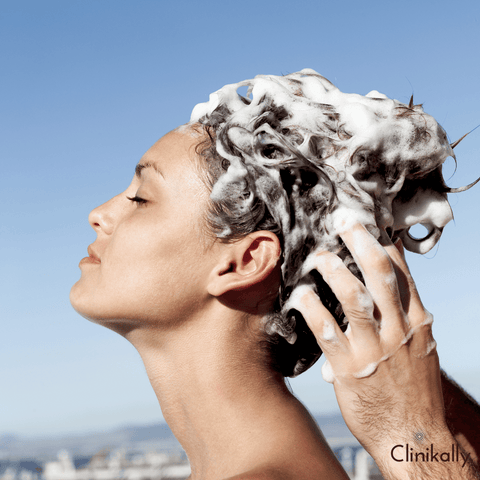
Ketoconazole shampoo is typically used to treat fungal infections of the scalp, such as dandruff, seborrheic dermatitis, and tinea versicolor. These conditions are often characterized by an itchy, scaly, or flaky scalp.
Ketoconazole is an antifungal medication that works by inhibiting the growth of fungus on the scalp. It is available over-the-counter in lower strengths and by prescription in higher strengths.
If you are experiencing symptoms of dandruff or seborrheic dermatitis, such as flakes, redness, and itching on your scalp, using a ketoconazole shampoo can help to alleviate these symptoms and prevent them from recurring.
It's important to note that ketoconazole shampoo should not be used as a daily shampoo. Instead, it is typically used two to three times a week for several weeks, depending on the severity of the condition. If you have any concerns about using ketoconazole shampoo, you should talk to your doctor or a pharmacist.
How Often to Use Ketoconazole Shampoo
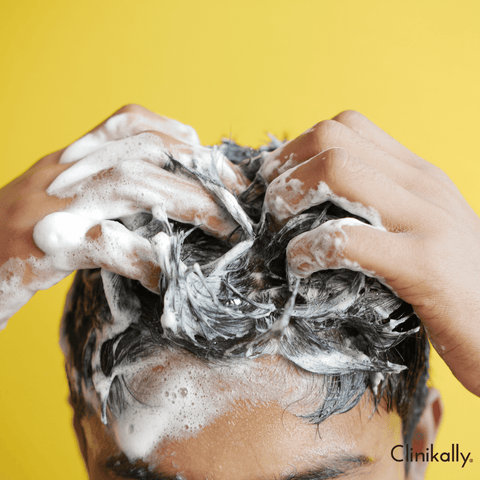
Ketoconazole shampoo is typically used to treat fungal infections of the scalp such as dandruff and seborrheic dermatitis. The frequency of use of ketoconazole shampoo depends on the severity of the fungal infection and the instructions provided by your healthcare provider.
As a general rule, ketoconazole shampoo is usually used twice a week for two to four weeks, followed by a maintenance regimen of once weekly or as directed by your healthcare provider. However, some healthcare providers may recommend a different dosing schedule based on your individual needs.
It's important to follow the instructions provided by your healthcare provider and the label instructions carefully to ensure the best possible results and to avoid any potential side effects. If you have any questions or concerns about how often to use ketoconazole shampoo, speak with your healthcare provider.
Tips for Using Ketoconazole Shampoo
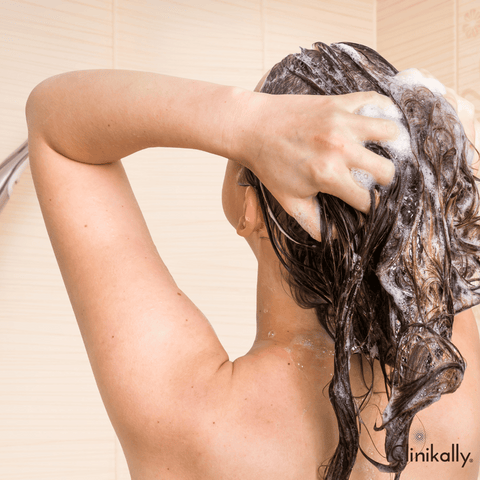
Ketoconazole shampoo is a medicated shampoo that is used to treat fungal infections of the scalp such as dandruff, seborrheic dermatitis, and tinea versicolor. Here are some tips for using ketoconazole shampoo:
-
Wet your hair and scalp thoroughly before applying the shampoo.
-
Apply a small amount of shampoo to the affected area and gently massage it into your scalp. Leave the shampoo on your scalp for 3-5 minutes.
-
Rinse your hair thoroughly with warm water. Repeat the process if necessary.
-
Use ketoconazole shampoo twice a week for up to 4 weeks, or as directed by your healthcare provider.
-
Avoid getting the shampoo in your eyes. If the shampoo comes into contact with your eyes, rinse them thoroughly with water.
-
Do not use the shampoo on broken or irritated skin.
-
Do not use ketoconazole shampoo with other hair products that contain alcohol or oil, as these can interfere with the effectiveness of the shampoo.
-
If your symptoms do not improve after using the shampoo for several weeks, consult your healthcare provider.
Possible Side Effects of Ketoconazole Shampoo
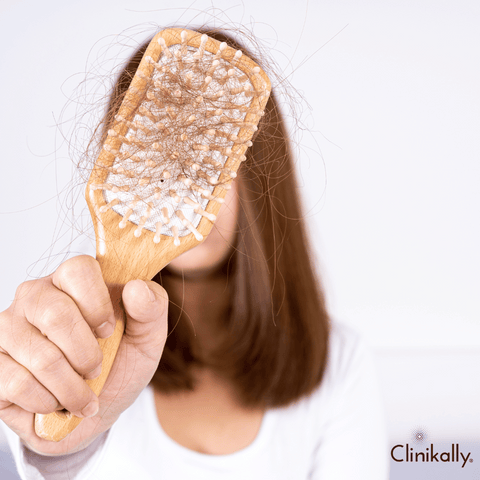
Ketoconazole shampoo is an antifungal medication used to treat various scalp conditions, such as dandruff, seborrheic dermatitis, and fungal infections. Although it is generally safe to use, there are some possible side effects that users may experience, including:
-
Skin irritation: Some people may experience itching, burning, or redness at the site of application.
-
Dry scalp: Ketoconazole shampoo can sometimes led to dry scalp, leading to flakiness and dryness.
-
Hair loss: Rarely, some people may experience hair loss or hair thinning as a result of using ketoconazole shampoo.
-
Allergic reaction: In some rare cases, an allergic reaction to ketoconazole shampoo can occur, causing symptoms such as hives, difficulty breathing, and swelling of the face, lips, tongue, or throat.
-
Changes in hair texture: Some people may experience changes in their hair texture, such as increased dryness or brittleness.
-
Changes in hair color: Rarely, some people may notice a change in their hair color, typically from blonde or light brown to a darker shade.
-
Eye irritation: If the shampoo comes into contact with the eyes, it can cause irritation and redness.
It's important to note that these side effects are relatively uncommon, and most people can use ketoconazole shampoo without experiencing any adverse effects. If you do experience any of these side effects, speak to your doctor or pharmacist, as they may be able to recommend ways to manage them or suggest alternative treatments.
Alternatives to Ketoconazole Shampoo
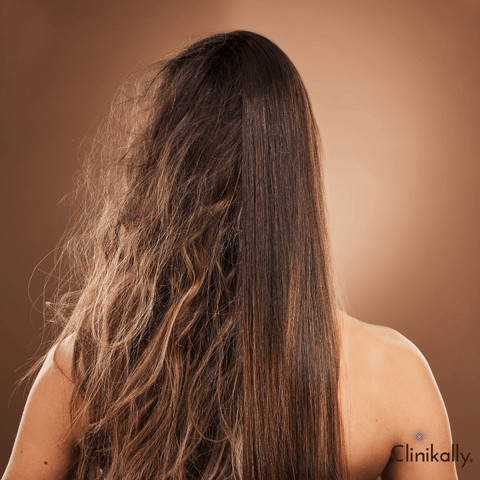
Ketoconazole shampoo is commonly used to treat fungal infections of the scalp such as dandruff and seborrheic dermatitis. However, if you are looking for alternative options, there are several other types of shampoos available that can help treat these conditions. Here are some alternatives to ketoconazole shampoo:
-
Selenium sulfide shampoo: This type of shampoo is used to treat dandruff and seborrheic dermatitis. It works by slowing down the growth of skin cells and reducing the amount of yeast on the scalp.
-
Zinc pyrithione shampoo: This type of shampoo is also used to treat dandruff and seborrheic dermatitis. It works by killing the yeast that can cause these conditions.
-
Coal tar shampoo: This type of shampoo is used to treat psoriasis and dandruff. It works by slowing down the growth of skin cells and reducing inflammation on the scalp.
-
Salicylic acid shampoo: This type of shampoo is used to treat dandruff and psoriasis. It works by removing dead skin cells from the scalp and reducing inflammation.
-
Tea tree oil shampoo: This type of shampoo is used to treat dandruff and other scalp conditions. It works by reducing inflammation and fighting the fungus that can cause dandruff.
It's important to note that if your condition persists or worsens despite using these shampoos, you should consult with a healthcare provider for further evaluation and treatment.
Ketoconazole Shampoo: Is it Safe?
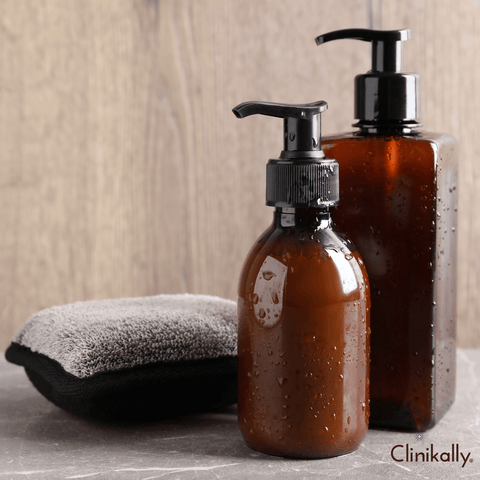
Ketoconazole shampoo is generally considered safe for use, but like any medication or product, it may have potential side effects or risks.
Ketoconazole is an antifungal medication that is commonly used to treat a variety of fungal infections, including dandruff, seborrheic dermatitis, and ringworm. When used as a shampoo, ketoconazole is applied to the scalp to treat scalp conditions caused by fungi.
Some possible side effects of ketoconazole shampoo may include itching, skin irritation, dryness, and hair loss. These side effects are generally mild and go away on their own after discontinuing use of the shampoo.
It is important to follow the instructions for use carefully, as overuse or misuse of the shampoo can lead to more serious side effects. If you experience any unusual symptoms while using ketoconazole shampoo, it is important to speak with your healthcare provider.
Overall, ketoconazole shampoo is considered safe when used as directed, but it is always a good idea to talk to your healthcare provider before starting any new medication or product.
Key Takeaways on Ketoconazole Shampoos

Ketoconazole shampoo is a medicated shampoo used to treat scalp conditions such as dandruff, seborrheic dermatitis, and fungal infections. Here are some key takeaways on ketoconazole shampoos:
-
Ketoconazole is an antifungal medication that can effectively treat fungal infections on the scalp.
-
Ketoconazole shampoo can also help reduce the symptoms of seborrheic dermatitis and dandruff.
-
It's important to follow the instructions provided by your healthcare provider or the product label when using ketoconazole shampoo.
-
Generally, ketoconazole shampoo should be used twice a week for 2-4 weeks, and then as needed to maintain results.
-
Side effects are rare but can include scalp irritation, itching, and redness. If you experience any unusual side effects, you should contact your healthcare provider.
-
Ketoconazole shampoo is available both over-the-counter and with a prescription.
-
If your symptoms do not improve after using ketoconazole shampoo for several weeks, or if they worsen, you should speak to your healthcare provider.




